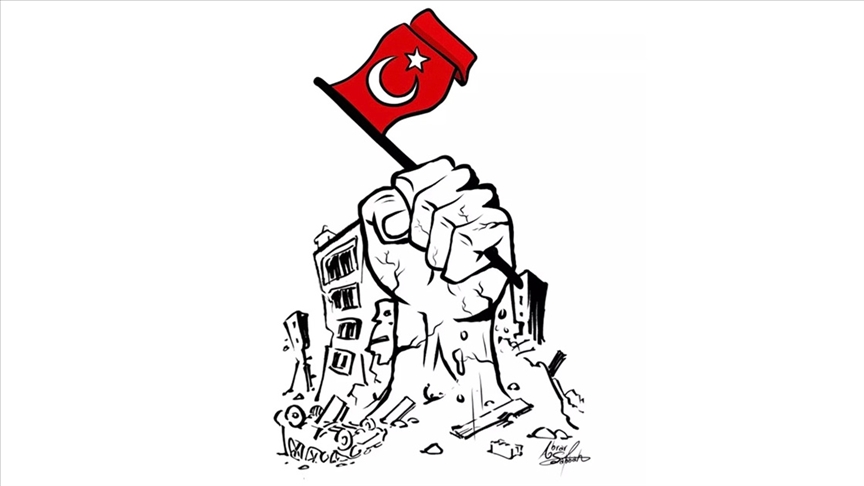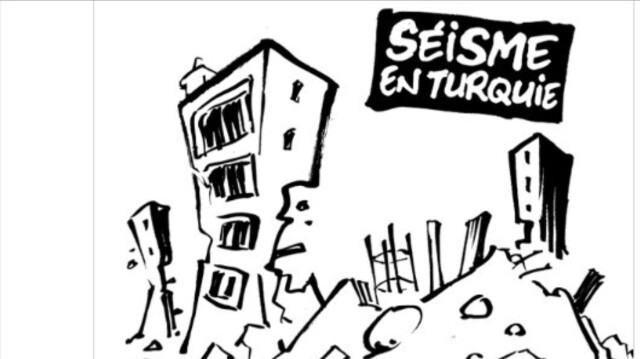The Banu Qurayza resided within fortresses called utum, which were located in the prairie region that stretched throughout the southeast of Medina. This tribe, which was related to the Banu Nadir, engaged in agricultural and trade activities. The Banu Qurayza and the Banu Nadir Tribes were allies of the Aws tribe and they had participated in the Medina Document as allies of the Aws tribe.
Since the Banu Qaynuqa and the Banu Nadir were broken the agreement and betrayed the Prophet (pbuh) they were exiled; still there were Banu Qurayza Jews in Medina. In accordance with the Medina Document, the Banu Qurayza were required to participate in the defense of the city, but the tribe had violated this condition during the Battle of the Trench and the Banu Qurayza, under the influence of Huyay ibn Ahtab, the leader of the Banu Nadir, had formed an alliance with this tribe who settled in Khaybar after exile. However, since the Prophet had made an agreement with them, he did not have a trench dug along the area in which the Banu Qurayza resided. Moreover, some of the equipment, such as pickaxes and shovels that were used to dig the trenches, were provided by the Banu Qurayza.
After being betrayed by the Banu Qurayza, the Prophet sent a unit of 300 men, led by Salama ibn Alsam al-Ashali and another unit of 200 men, led by Zayd ibn Haritha, in order to intimidate them so that they would not organize a sudden attack on Medina. During the most critical point of the Battle of the Trench, the Muslims had been let down by the betrayal of Banu Qurayza. Meanwhile, Nu'aym ibn Mas'ud, a prominent member of the Gatafan tribe, became Muslim and in accordance with the decision of the Prophet he played both ends against the middle between the Banu Qurayza and its allies. This ended the Battle of the Trench and eliminated any element of risk for the Muslims.
According to accounts found in the sources, the Prophet received a revelation after returning back home after the Battle of the Trench. Upon this he called Bilal al-Habashi and commanded him to tell the Companions to perform the afternoon prayer within the lands of the Banu Qurayza. Then he donned his armor, took his weapons and mounted his horse. He gave the banner to Ali and sent him ahead with the scouts. The Prophet assigned Abdullah ibn Ummu Maktum as proxy in Medina and set out on campaign (23 Dhu al-Qidah 5 /April 15th 627).
Some of the units moved at different hours; at the time of the afternoon prayer there was a disagreement as to whether they were going to perform the prayer before entering the lands of the Banu Qurayza or whether this was against the orders of the Prophet. Some of the units performed the afternoon prayer on time while others performed it along with the night prayer, after reaching the lands of the Banu Qurayza. When the situation was conveyed to Prophet Muhammad, he did not criticize any of the units; thus it can be understood that both actions were appropriate.
Ali had reached the fortresses of the Banu Qurayza before Prophet Muhammad and he heard that the Jews were speaking negatively about the Prophet and his wives. He thought that the Prophet would be upset and thus Ali asked him not to approach the location of the Jews. The Prophet reminded him that Moses had faced more difficult situations and then he moved towards their fortresses, saying that when the Banu Qurayza saw Him they would not utter a word. Prophet Muhammad spoke with the leaders of each tribe and invited them to become Muslim. Upon receiving their negative responses, he asked them to yield to Allah and His prophet and to surrender. This too they refused to do and subsequently the battle began. The Banu Qurayza was besieged for fifteen or twenty-five days, during which there was an intensive rain of arrows and stones. While the Muslims consisted of 3,000 warriors and 36 cavalry, while the Banu Qurayza warriors numbered 600 to 700. They were led by their leaders Ka'b ibn Asad and his ally Huyay ibn Ahtab.
The number of Banu Qurayza warriors was said to have ranged from between 400 to 800 or 900. Meanwhile, the hypocrites went to the Banu Qurayza and encouraged them not to yield to the Muslims, promised them that they would help if they continued their resistance. The Jews saw that the help promised by the hypocrites did not arrive and thus they became desperate and decided to negotiate with the Prophet. The conditions were provided by the Banu Nadir; they suggested pulling out of Medina, leaving behind their assets and weapons and taking only one camel load of possessions for each person. Prophet Muhammad saw that the Banu Nadir, whom he had released two years ago on the condition that they leave Medina, had now sided with the enemies during the Battle of the Trench. Thus, the Prophet did not agree to this proposal and told them that they must surrender unconditionally. The Banu Qurayza asked Prophet Muhammad to send Abu Lubaba ibn Abdulmundhir, a member of their ally Avs, to them so that they could discuss some issues with him. The Jews asked Abu Lubaba to save them from this predicament and asked him what Prophet Muhammad was planning for them. Abu Lubaba indicated his throat, implying that they were to be executed. However, after a while Abu Lubaba thought that he was betraying Allah and His prophet by giving them information and became regretful. He went to the al-Masjid al-Nabawi and tied himself to a pole and remained there for days, only fulfilling his basic needs until he was forgiven by Allah and untied by the Prophet. After his repentance had been accepted (al-Anfal 8/27 or al-Tauba 9/102) Abu Lubaba wanted to distribute his assets as donation, yet upon the advice of the Prophet he gave away only one-third of his assets.
The Banu Qurayza were left without hope after the siege and accepted the rulings of the Prophet and surrendered. Meanwhile, taking into account that Abdullah ibn Ubay ibn Salul acted as an intermediary and had saved his allies, the Banu Qaynuqa Jews, from the death sentence, the Aws tribe went to the Prophet and requested that their ally the Banu Qurayza be treated well. In order to make a ruling concerning the Banu Qurayza, it was decided, on their suggestion, that Sa'd ibn Mu'az from the Aws tribe be assigned as arbitrator. Due to the wounds he had suffered in the Battle of the Trench, Sa'd ibn Muadh was being treated in a tent in Medina. When he was taken to where Prophet Muhammad resided, the people of Aws kept asking him to make a ruling in favor of their allies, the Banu Qurayza. Sa'd received promises from the Aws, the Banu Qurayza and Prophet Muhammad that they would all consent to his ruling and then he pronounced his judgment. The men who were old enough to fight were to be executed, the women and the children would be taken as prisoners and the assets were to be distributed among the Muslims. The Prophet stated that Sa'd had made a ruling with the verdict of Allah and approved. Moreover, it is seen that this Sa'd's ruling was in accordance with the Torah (Tasniya, XX/10-15) and that such a decision also existed in the Quran (al-Maida 5/33-34) among the punishments to be given to those who started wars against Allah and His Prophet and those who would tyrannize on earth.
While the prisoners of the Banu Qurayza were being held, the loot was gathered together. It is reported that there were 1,500 swords, 300 suits of armors, 2,000 spears, and 1,500 shields taken from the Banu Qurayza. After this, trenches were dug and the people who had been sentenced to death were executed. A woman named Nubata was executed because she had killed Khallad ibn Suvayd by toppling a rock over him upon the request of her husband. The Prophet permitted the people of the Banu Qurayza who were sentenced to death to read the Torah and they were given food and drink, and their executions were carried out in cool places.
Some of the women and children prisoners, whose numbers were said to have been around 1,000 were released. Some of them were given to the companions; some of them were sold and the earnings from their sale were used to buy horses and arms for jihad. The Prophet ordered that little children were not to be separated from their mothers, and orphans should be sold to Muslims instead of idolaters or Jews. After the khumus was taken from the loot, the remaining four-fifths of it was shared out between the warriors. The infantries were given one share of goods from the loots, and the cavalries were given two shares from it. The Prophet gave some presents to the women who had participated in the battle. A share was allocated to the heirs of Khallad ibn Suvayd who had been martyred by millstone and to Abu Sinan ibn Mihsan who had died from natural causes during the siege.
Several people accepted Islam during the Battle of Banu Qurayza. The Prophet married Rayhana bint Zayd ibn Amr, who was among the prisoners after she had accepted Islam. It is considered that the 26th and 27th verses of Surah al-Ahzab refer to the Battle of Banu Qurayza.
Subscribe to:
Post Comments (Atom)









No comments:
Post a Comment